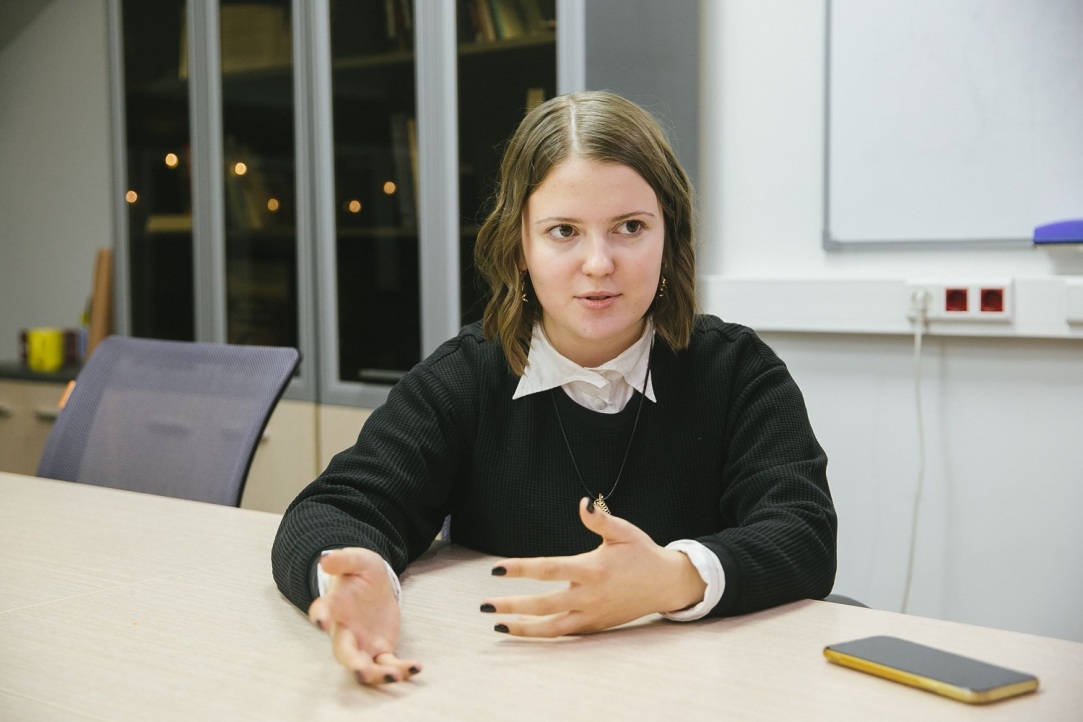
Operation of Cellular Networks Found Similar to Bacteria Growth in Petri Dish
Scientists at the HSE Laboratory for Computational Physics have developed a new model for analysing communication networks that can significantly enhance the speed of mobile communications. To achieve this, the researchers used computational physics methods and phase transition models. It turns out that the functioning of cellular networks is in many ways similar to the growth of surfaces in physics. The study was performed using the HPC cHARISMa cluster at HSE University. The study findings have been published in Frontiers in Physics.

‘We Cannot Understand the Modern Ideological Confrontation without the Accusations that Emerged during the Lausanne Process’
Rainer Matos Franco, from Mexico, defended his PhD thesis with honours at HSE University this June. In his dissertation, Rainer Matos Franco examines the history of anticommunism in Europe during the 1920s. The HSE News Service spoke with Rainer and his academic supervisor, Tatiana Borisova, about the significance of the Lausanne Process for the Cold War and contemporary history, the opportunities provided by HSE University for international PhD candidates, and the challenges of working with a vast database of historical sources.
%20(1).png)
Research Results from HSE University Form Basis of UN Report on Volunteering
The first Regional State of Volunteering in Central Asia Review was presented at the UN Headquarters in New York as part of the annual High-Level Political Forum on Sustainable Development. The preparation of this document included the research conducted by the HSE Centre for Studies of Civil Society and the Nonprofit Sector (CSCSNS), with Viacheslav Ivanov, the Chief Expert of the Centre, serving as the lead author of the review.

Spelling Sensitivity in Russian Speakers Develops by Early Adolescence
Scientists at the RAS Institute of Higher Nervous Activity and Neurophysiology and HSE University have uncovered how the foundations of literacy develop in the brain. To achieve this, they compared error recognition processes across three age groups: children aged 8 to 10, early adolescents aged 11 to 14, and adults. The experiment revealed that a child's sensitivity to spelling errors first emerges in primary school and continues to develop well into the teenage years, at least until age 14. Before that age, children are less adept at recognising misspelled words compared to older teenagers and adults. The study findings have beenpublished in Scientific Reports .

'When a Shuttlecock is Flying at You, it's Impossible to Worry about Deadlines'
Lika Kapustina is in her fifth year of social studies and engages in research using technology that enables automated collection of data from open sources. In her interview with the HSE Young Scientists project, she recalls the nights spent working in the library, speaks about the Algorithm of Light, and reflects on how network analysis has influenced her.

HSE Researchers Demonstrate Effectiveness of Machine Learning in Forecasting Inflation
Inflation is a key indicator of economic stability, and being able to accurately forecast its levels across regions is crucial for governments, businesses, and households. Tatiana Bukina and Dmitry Kashin at HSE Campus in Perm have found that machine learning techniques outperform traditional econometric models in long-term inflation forecasting. The results of the study focused on several regions in the Privolzhskiy Federal District have been published in HSE Economic Journal.

Ruthenium Complexes Can Accelerate the Development of New Medicines
A group of scientists at INEOS RAS, HSE University, and MIPT have synthesised catalysts containing a ruthenium atom and an aromatic ring. The scientists have isolated the mirror forms of these catalysts and investigated their effectiveness in producing heterocycles, which are commonly found in the structures of drugs. The research findings have been published in Chemical Communications.

Connecting Space and Time: Bilinguals Associate Time with Space in Both Their First and Second Languages
An international team of researchers including scientists at HSE University investigated how bilingual individuals associate time with space. It turns out that in both their first and second languages, people associate the past with the left side of space and the future with the right. In fact, the higher the proficiency in a second language, the more pronounced this relationship becomes. The study findings have been published in Scientific Reports.

HSE University Participates in Youth Hiking Tourism Development Strategy
HSE University and the project team of ‘Hikes of the First—More than a Trip’ are working on a strategy to promote hiking tourism among young people through 2030. At the HSE University project session, honoured travellers of Russia, trail builders, and representatives from various institutions, such as HSE University and the Ministry of Natural Resources and Environment of Russia, came together to work on proposals. For three years, university experts were designing mechanisms for creating the infrastructure for hiking tourism, taking into account safety standards, eco-friendliness, and professional training for guides.
_08.jpeg)
Choosing the Right Server Results in Better Outcomes in Doubles Tennis
The Roland Garros tennis tournament, one of the most prestigious in the world, began on May 26. The prize money for this year's French Open totals nearly 54 million euros, with athletes competing in both singles and doubles events. In doubles tennis, choosing the right strategy for a match is crucial. Athletes' ability to adapt to the dynamics of the match and strategically choose the server can earn the pair up to 5% more points, according to Nikolai Avkhimovich, doctoral student and research fellow at the Laboratory of Sports Studies of the HSE Faculty of Economic Sciences. A paper with the study findings has been published in Applied Economics.


Deadline for submitting applications - September 5, 2025